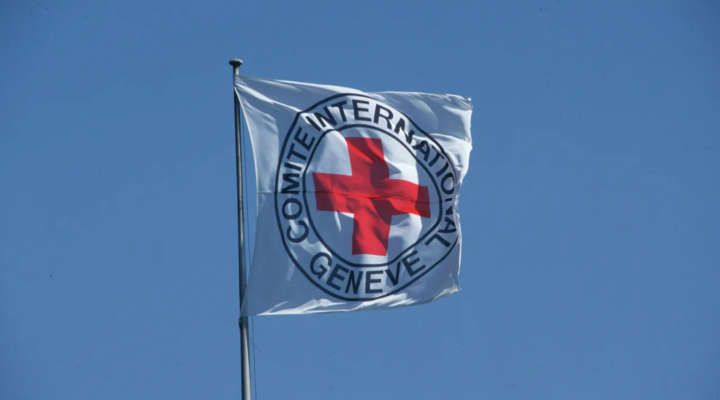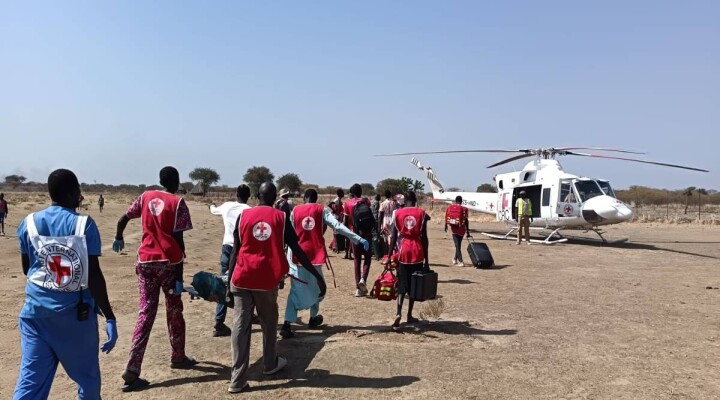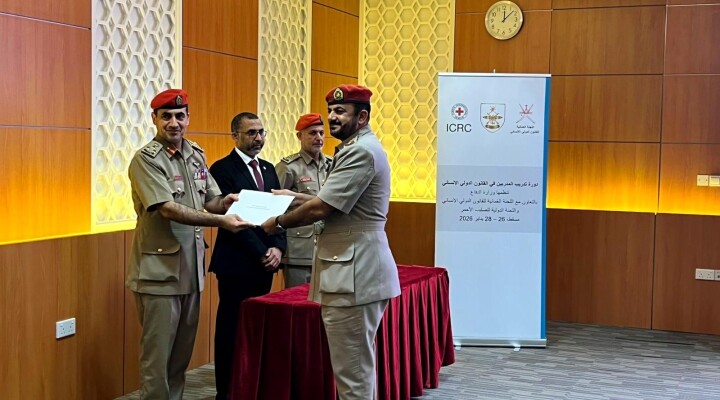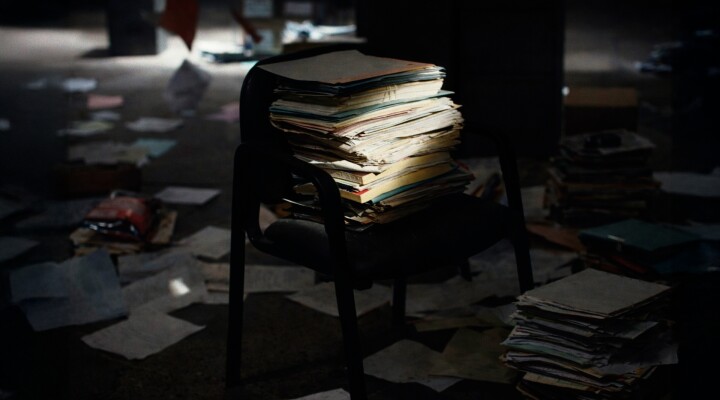Urban Warfare: No one is spared as cities become battlefields
21st century wars are taking place in cities: urban warfare has become the norm, the battles are in people’s homes, on their doorsteps, in their streets, their schools, and their hospitals. In a new report, the International Committee of the Red Cross reveals the human consequences of modern warfare, the findings, says the ICRC’s director of operations for the middle east Robert Mardini, are disturbing.
“Well from 2010 to 2015, imagine, half of the civilians who were killed in armed conflict died in Iraq, Syria, and Yemen,” he explains.
“The vast majority of them died in conflict taking place in cities, in urban centres. And at the same time you have millions of people who were driven out of their homes, who had to flee, leaving everything behind.”
The report, ‘I Saw My City Die’ shows that in the last three years, 70 per cent of all civilian deaths in Iraq and Syria took place in cities. Between 2010 and 2015, nearly half of all civilian war deaths worldwide occurred in Syria, Iraq, and Yemen.
In Syria, millions of people have been subjected to an unbearable combination: medieval style sieges in which no aid can get in, together with the full force of high tech aerial bombardment.
Yasser Mustafa Najjar has lived with his family in east Aleppo for decades. The conflict brought daily deprivation and danger, with shortages of food, water, and fuel.
What’s more, in urban conflicts civilians have few chances to stay safe, and the battle for Aleppo brought personal tragedy to Yasser.
“My son died here in the rubble,” says Yasser. “Two floors collapsed on him. He suffocated….He was a good person, God bless him, generous, a hard worker, respectful, and honest.”
Despite all his grief and loss, Yasser was determined not to be driven from his home. But in the end, staying became impossible; the risk for his family was just too great.
“We left in the middle of the night, walking, the situation looked like judgment day,” he remembers.
“I was with a relative, she had six children, as well there was (my wife) Om Staif, my daughter and my (younger) son, and I was carrying at least 50 kilos of belongings.”
But, all too often, urban warfare does not pause to allow families like Yasser’s to flee safely. In Iraq, hundreds of thousands of people have been trying to escape the city of Mosul, while the battle rages around them.
The ICRC has been supporting Mosul General Hospital, just a kilometer from the front line. Civilians with devastating war injuries are being brought in.
“All the traumas we see, more than 90 per cent, are directly war wounded traumas,” says emergency room doctor Julia Schürch. “Gunshots and shell injuries, which means from blasts, bombs. Here it is really a very high number of war wounded cases, from very small superficial lesions from flying elements to deadly injuries.”
Despite the dedication of the medical staff, the number of casualties and the nature of their injuries mean that Julia and her colleagues cannot save everyone, some patients die before they can even be treated.
“Today we had a big mass casualty,” says Julia. “I cannot even say at the moment how many people managed to come to the hospital, it must have been over fifty, and at least twenty of them were very severe cases.”
When people do manage to flee the battles in their cities, being away from the fighting can be a huge relief, at first. But soon comes the realization of how much has been lost: homes, jobs, and for many, the dignity of being able to provide for the family.
Ali and Um Mohammed lived in Taiz, Yemen, but when the conflict came to their own street, and their house was damaged in an air attack, they fled to Sana’a with their three children, taking only the clothes they were wearing. Now Um Mohammed worries about how to feed her family.
“As you see, we have nothing in the kitchen,” she says. “All the baskets in the kitchen are empty. If we were not living in war, we would not have experienced such poverty.”
For her husband Ali the pain goes deeper. He has always been able to look after his children, and now he cannot.
“When my children need something, and I don’t have it, I feel frustrated. I die a thousand times. When your child needs something from you, or your daughter wants to go to school, or asks to wear clothes like others.”
War in cities destroys not just the homes people live in, but the very fabric of family life.
“My husband used to work. He could give them everything they needed. Now because of the war he has no job,” says Um Mohammed.
“Now he is suffering psychologically. He is hitting his sons.”
From Syria, to Yemen, to Iraq, all those caught up in urban conflict yearn for one simple thing: the chance to return home and resume normal everyday life. But in Mosul, parts of the city have suffered catastrophic damage, and the battle isn’t over yet.
Like hundreds of thousands of civilians in Mosul, brothers Ibrahim and Mohammad Khalid had to flee the fighting. Now, they have heard that their neighborhood is calm again, and they are determined to return to their family home. But what they find is not what they left behind.
“It's a complete catastrophe, there are bodies here that have been on the ground for 45 days”, says Mohammad. “The smell is awful. No one is picking them up, we've asked officials to taken away them but they didn't. Look at the destruction: the buildings and houses which have been hit, they are rubble. Our neighborhood has become a disaster area.”
“Look at the bodies here, the smell is disgusting, this will bring disease.”
Ibrahim and Mohammad now face having to rebuild a family home that is almost completely destroyed. They have no money, no work, and their father is dead. The neighborhood they grew up in lacks reliable water and electricity. For millions of people, in Iraq, Syria, and Yemen, the challenge of restarting life is immense.
“The message is to the fighters themselves” says Robert Mardini. “They need to recognize that at the end of the day they are contributing to punishing their own communities, their own families, disrupting essential services …everybody is losing."
“Trust needs to be rebuilt, this is the most daunting challenge to be overcome, and the best way to overcome it is to try to preserve, during the conflict, a minimum level of humanity.”
Young men like Ibrahim and Mohammad have hard, traumatic memories to cope with, and they are realistic about the task ahead of them. But they are also determined not to give up their home. For that, they need our support.
“We don’t have anywhere else to go,” say Mohammad and Ibrahim. “And we don’t have money.”
“But,” adds Ibrahim, “I won’t be a stranger in another city, Mosul is my Mosul”.
Facts and Figures
The proportion of deaths in Iraq, Syria and Yemen is based on a yearly average of around 90’000 global conflict-related deaths between 2010 and 2015, during which time the yearly average of deaths in Iraq, Syria and Yemen was of 42’000 conflict-related deaths i.e. 47% of the total casualties worldwide. The figures are based on data from the Geneva Declaration Secretariat. 2015. Global Burden of Armed Violence 2015: Every Body Counts.
The conflicts in Syria, Iraq and Yemen have resulted in internal displacement and migration levels unprecedented since WWII. More than 17 million Iraqis, Syrians and Yemenis have fled their homes.
For further information, please contact:
Ralph El Hage, ICRC Amman Tel. +962 77845 4382
Krista Armstrong, ICRC Geneva, +41 79 217 32 87
Iolanda Jaquemet, ICRC Geneva, +41 79 447 37 26
To find out what the ICRC is doing to support people in Syria, Iraq, and Yemen go to
https://www.icrc.org/en/where-we-work/middle-east/syria
https://www.icrc.org/en/where-we-work/middle-east/iraq
https://www.icrc.org/en/where-we-work/middle-east/yemen
Follow the ICRC on facebook.com/icrc and twitter.com/icrc
SHOTLIST
Location: Syria, Iraq, Yemen
0:00 – 0:07 Ruined streets Aleppo
0:07 – 0:13 Destroyed building Aleppo
0:13 – 0:20 Destroyed car and buildings Mosul
0:20 – 0:27 Boy in front of ruined buildings Mosul
0:27 – 0:32 Interior damaged hospital Mosul
0:32 – 0:35 Street Aleppo
0:35 – 0:38 Man in ruined street Aleppo
0:38 – 1:08 Soundbite (English) Robert Mardini, ICRC Director of Operations for the Middle East “Well from 2010 to 2015, imagine, half of the civilians who were killed in armed conflict died in Iraq, Syria, and Yemen. The vast majority of them died in conflict taking place in cities, in urban centres. And at the same time you have millions of people who were driven out of their homes, who had to flee, leaving everything behind.”
1:08 – 1:14 Yasser and friend in street Aleppo
1:14 – 1:21 MCU Yasser and friend drinking coffee
1:21 - 1:26 Man with cart in street, Aleppo
1:26 – 1:31 Yasser and friend
1:31 – 2:00 Soundbite Yasser Mustafa Najjar (Arabic) in ruined building. “My son died here in the rubble. Two floors collapsed on him. He suffocated. He was a good person, God bless him, generous, a hard worker, respectful, and honest.”
2:00 – 2:07 Yasser walking away down ruined street, Aleppo
2:07 – 2:11 children running in ruined street Aleppo.
2:11 – 2:28 Soundbite Yasser Mustafa Najjar (Arabic). “We left in the middle of the night, walking, the situation looked like judgment day. I was with a relative, she had six children, as well there was my wife Om Staif, my daughter and my younger son, and I was carrying at least 50 kilos of belongings.”
2:28 – 2:35 Girl being rushed in to Mosul General Hospital
2:35 – 2:45 Medical staff trying to resuscitate her
2:45 – 2:56 Crowded hospital corridor
2:56 – 3:26 Soundbite Julia Schürch, emergency room doctor (English) “All the traumas we see, more than 90 per cent, are directly war wounded traumas. Gunshots and shell injuries, which means from blasts, bombs. Here it is really a very high number of war wounded cases, from very small superficial lesions from flying elements to deadly injuries.”
3:26 – 3:31 Patient on stretcher being pushed into Mosul General Hospital
3:31 – 3:35 Patient and relatives waiting outside hospital
3:35 – 3:40 MCU Wounded patient on stretcher
3:40 – 3:44 MS Woman on stretcher being treated
3:44 – 3:48 Julia talking to another doctor, very busy
3:48 – 3:51 medical staff and anxious relatives
3:51 – 3:56 WS hospital ward very busy
3:56 – 4:16 Soundbite Julia Schürch, emergency room doctor (English) “Today we had a big mass casualty. I cannot even say at the moment how many people managed to come to the hospital, it must have been over fifty, and at least twenty of them were very severe cases.”
4:16 – 4:27 young boy on stretcher being offered water
4:27 – 4:35 grieving couple in hospital
4:35 – 4:39 MCU couple
4:39 – 4:44 grieving family next to ambulance
4:44 – 4:49 WS Taiz, Yemen
4:49 – 4:53 Ruined street Taiz
4:53 – 4:57 Ruined buildings and traffic, Taiz
4:57 – 5:01 Woman walking past ruined houses, Taiz
5:01 – 5:15 Soundbite (Arabic) Um Mohammed “As you see, we have nothing in the kitchen. All the baskets in the kitchen are empty. If we were not living in war, we would not have experienced such poverty.”
5:15 – 5:27 Um Mohammed feeding children
5:27 – 5:48 Soundbite Ali Mohammed (Arabic) “When my children need something, and I don’t have it, I feel frustrated. I die a thousand times. When your child needs something from you, or your daughter wants to go to school, or asks to wear clothes like others.”
5:48 – 6:01 Ali holding pictures of his family
6:01 – 6:17 Soundbite (Arabic) Um Mohammed “My husband used to work. He could give them everything they needed. Now because of the war he has no job. Now he is suffering psychologically. He is hitting his sons.”
6:17 – 6:24 MCU Ali weeping
6:24 – 6:39 Destroyed neighbourhood, Mosul, pan round
6:39 – 6:48 Boys walking through collapses buildings, Mosul
6:48 - 6:53 Boys playing in ruined street, Mosul
6:53 – 7:27 Soundbite Mohammad Khalid (Arabic) “It's a complete catastrophe, there are bodies here that have been on the ground for 45 days. The smell is awful. No one is picking them up, we've asked officials to taken away them but they didn't. Look at the destruction: the buildings and houses which have been hit, they are rubble. Our neighbourhood has become a disaster area. Look at the bodies here, the smell is disgusting, this will bring disease.”
7:27 – 7:35 young man with wheel barrow, ruined street, Mosul
7:35 – 7:40 Mohammed and others walking down street, Mosul
7:40 – 8:32 Soundbite (English) Robert Mardini, ICRC Director of Operations for the Middle East “The message is to the fighters themselves. They need to recognize that at the end of the day they are contributing to punishing their own communities, their own families, when hospitals are targeted, when civilian neighbourhoods are targeted, when ambulances are targeted, they are disrupting essential services for their own communities, and everybody is losing. Trust needs to be rebuilt amongst members of communities who witnessed a conflict in an urban area, and this is the most daunting challenge to be overcome, and the best way to overcome it is to try to preserve, during the conflict, a minimum level of humanity.”
8:32 – 8:37 shovels inside ruined house
8:37 – 8:43 Mohammed and Ibrahim shovelling
8:43 – 8:54 (Arabic) Mohammed and Ibrahim “We don’t have anywhere else to go. And we don’t have money. But I won’t be a stranger in another city, Mosul is my Mosul”.
8:54 – 9:02 Ibrahim looking around his damaged house
9:02 – 9:07 View out window to other ruined houses
9:07 – 9:11 View from another window onto ruined houses
9:11 – 9:17 ruined street, repair work underway
Length: 9:17
Format: HD H264 mov
Camera: Various
Sound: Various
ICRC ref:
Date: June 2017
Copyright: ICRC access all



